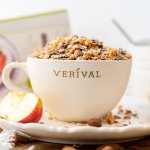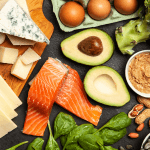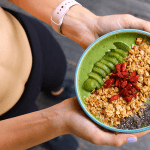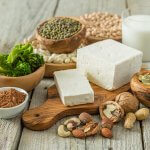These are the most important nutrients for athletes
November 4, 2021- Fitness
- Muscle building
- Nutrition
- Sport

Anyone who wants to be physically fit should pay attention to a healthy diet in addition to a suitable training plan. Especially important is the increased need for nutrients, which must be adapted to the requirements of the respective sport. In this article you can find out what the ideal diet for sports looks like and what you should pay special attention to.
Übersicht
What are endurance sports?
Dedicated hobby runners in a half marathon, professional cyclists in a stage of the Tour de France or hikers in the Alps – they all have one thing in common. And this despite the fact that the activity itself could not be more different. But the great commonality is hidden somewhat behind the façade. Because whether they are hobby runners, professional cyclists or hikers, they are all people who practise endurance sports.
If the first words that come to mind when you think of endurance are cardio or high-intensity interval training – HIIT or HIT for short – you are not far off the mark. These are synonyms or training methods for endurance.

Why cardio is so healthy
Cardio, a common synonym for endurance in athletic circles, is considered extremely healthy. And rightly so. Because regular endurance training can not only increase general performance, but also prevent typical common diseases such as cardiovascular diseases or chronic lung problems.
For most people, three extended jogging sessions per week are enough. For those who prefer a short and crisp workout, High-Intensity Interval Training is more suitable. HIIT, as this form of training is abbreviated, is characterised by short and very intense workouts that are interrupted by targeted recovery breaks.
The training effect is almost the same, but the external load is extremely different. We will now take a closer look at how you can optimally adapt your nutrition to the respective training.
The most important nutrients for endurance athletes
Basically, a healthy diet for endurance athletes is very similar to the recommendations for the general population: plenty of fruit and vegetables, moderate meat and fish consumption, healthy sources of fat and fibre-rich cereals. The big difference is therefore not so much in the quality, but rather in the quantity.
Calories are burned during and after the endurance session, which leads to an increased need for certain nutrients. Your body needs more energy, which you can best get from carbohydrates and fats. As always, complex carbohydrates, ideally with plenty of fibre, as well as healthy sources of fat, are important.
The following table should give you a brief overview of important plant-based carbohydrate and fat sources.
| Complex carbohydrate sources | oods with healthy fatty acids |
| Whole grains (pasta, bread) | Nuts (walnuts, pecans) |
| Oats (oat flakes, oat bran) | Seeds (linseed, chia seeds) |
| Pseudocereals (quinoa, buckwheat) | Vegetable oils (rapeseed oil, olive oil) |
| Pulses (beans, lentils) | Legumes (soybeans, peanuts) |
| Fruit and vegetables (bananas, potatoes) | Vegetables (avocados, olives) |
Eating before training – you should pay attention to this
Particularly when energy requirements are increased by strenuous training, it is advisable to choose higher-energy foods. Nevertheless, you should make sure to choose carbohydrate sources that have a variety of micronutrients.
While classic wheat flour has a very low nutrient density and consists almost exclusively of carbohydrates, whole grains and pulses score highly with their increased content of micronutrients, protein and fibre. The fibre ensures that the blood sugar level rises in a controlled manner and that you get exactly as much energy as you need, step by step.
Before your training sessions, however, you should make sure that the meal is easy to digest and does not linger too long in your stomach. Otherwise, your performance may suffer or you may even get a stomach ache.
A good combination of complex carbohydrates, fibre and easy digestibility is porridge. Our Verival Sport Porridge, for example, is enriched with proteins from sunflower and pumpkin seeds to provide you with sufficient energy and protein.
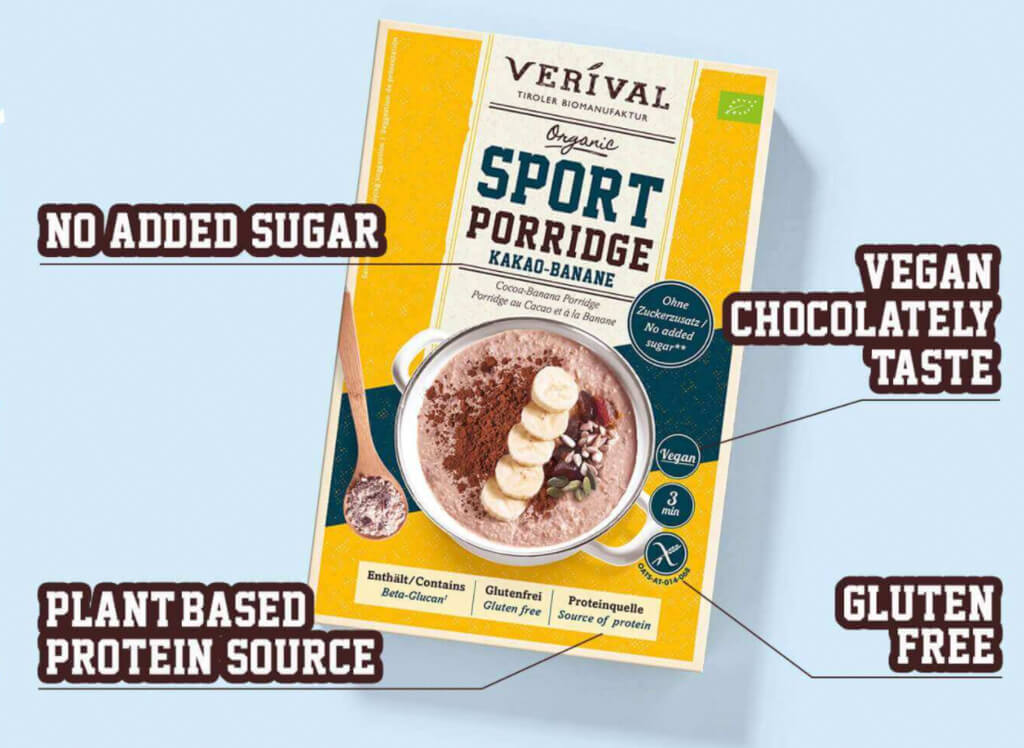
This is how much protein endurance athletes need
Speaking of protein – endurance athletes have a higher protein requirement. About 1.2 to 1.6 grams of protein per kilogram of body weight are recommended. If you calculate with a person weighing 70 kg, this quickly means a requirement of over 100 grams of protein per day.
For comparison, only 0.8 grams per kilogram of body weight per day are recommended for the normal population. For a person weighing 70 kg, this would be just 56 grams of protein per day.
In order to meet the increased demand, it is recommended to integrate protein-rich foods into meals. This is particularly easy with our organic crunchy almond cream. The almond paste from Verival consists of 25 percent high–quality protein and is not only suitable as a topping for porridges and mueslis, but can also be easily integrated into your post-workout shake.
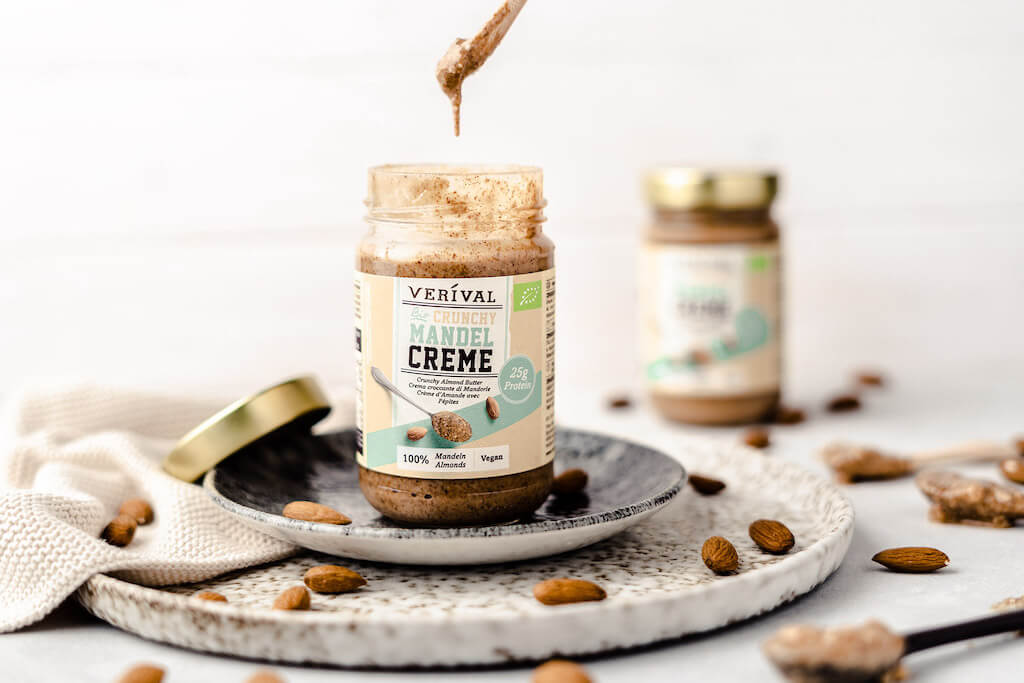
The most important sources of protein for endurance athletes also include pulses, seeds and nuts, as well as some cereals and pseudo-cereals such as quinoa, oatmeal or wholemeal pasta.
Power sports
Along with endurance, strength is considered one of the two major conditional abilities in sports science. Accordingly, strength training is also important for many sports. Anyone who thinks that only bodybuilders do strength training is far off the mark.
Strength training is recommended for all population groups. This applies to hobby athletes who want to achieve their summer figure, as well as to people in old age to slow down muscle loss and competitive athletes of various disciplines.
Just as in endurance sports, regular strength training also increases the need for numerous nutrients. We will now take a closer look at the macro- and micronutrients and how you can best meet your needs.
The optimal nutrient supply for strength athletes
It is generally known by now that the protein requirement for strength athletes is increased. The recommendations from sports and nutrition science are largely the same as those for endurance athletes. About 1.2 to 1.6 grams of protein per kilogram of body weight are recommended.
For particularly hard-working people, however, the requirement can increase to up to 2 grams per kilogram per day. However, the majority of strength athletes will be able to achieve success with less. Nevertheless, the impression remains that the amounts to be consumed are quite considerable.
Accordingly, you should make sure to include protein-rich foods in your daily meals in order to cover your increased needs in the best possible way. At the same time, it is important to maintain a healthy diet. And this is defined, among other things, by a reduced consumption of animal protein sources, as these contain increased amounts of harmful by-products. You can find an overview of the best vegetable protein sources in the following table.
| Vegetable protein sources | Protein content per 100g |
| Red and Yellow Lentils | 27g |
| Verival Crunchy Almond Cream | 25g |
| Kidney beans | 25g |
| Sunflower seeds | 21g |
| Chickpeas | 19g |
| Wheat bran | 16g |
| Quinoa | 15g |
| Oat flakes | 13g |
Carbohydrates, fats and co. – what do I need to consider?
When it comes to building muscle and strength, there is no getting around carbohydrates and fats. Both energy sources play important roles in these processes. Fats are particularly important for a balanced hormone balance, while carbohydrates serve as an important energy supplier.
During training, your body uses carbohydrates in addition to the quickly available, so-called energy-rich phosphates. This empties the glycogen stores, as the carbohydrate stores are also called. To replenish them after training, you should eat a carbohydrate-rich diet.
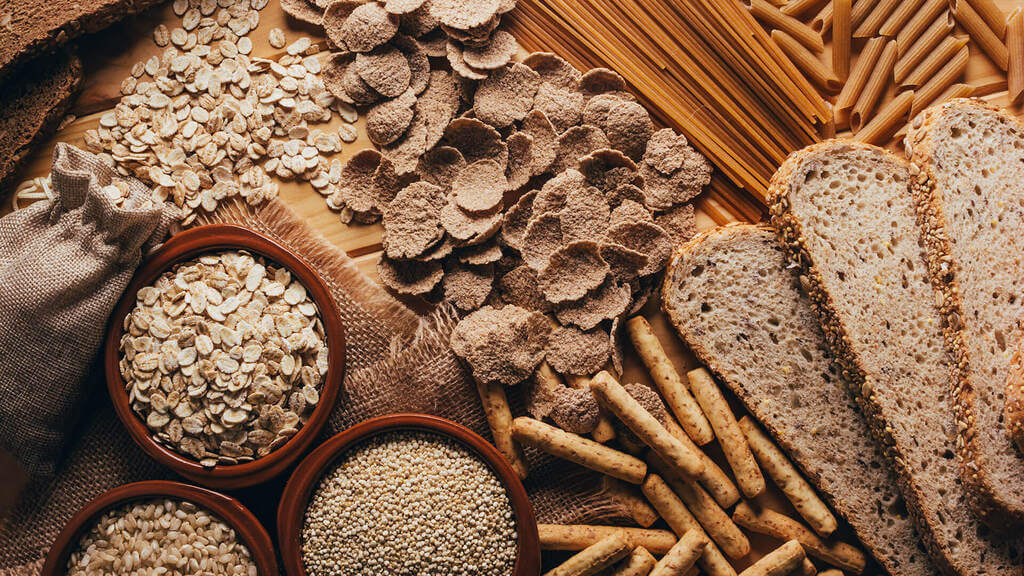
Ideally, it should be easily digestible and full of healthy proteins to get into the bloodstream quickly and start recovery. To cover your needs, you can use the same carbohydrate sources that we have already worked out in the table for endurance sports.
The need for fats, on the other hand, is not particularly increased, but you should not go below a minimum amount of about one gram per kilogram of body weight. Only in the case of targeted weight gain or a low carb diet can an increase in healthy fatty acids make sense.
Extreme loads – what do I have to bear in mind?
When it comes to extreme loads, for example in the course of a marathon or even a triathlon, there are a few special things to consider. This is because large amounts of calories are burned, electrolytes are sweated out and even proteins are used to provide energy, especially during very long endurance efforts.
If the exercise lasts longer than an hour, you should start taking carbohydrates during the activity. This is best done in liquid form to facilitate the absorption of nutrients. For example, a mixture of 750 ml water, 250 ml fruit juice and a pinch of salt is suitable. This helps to conserve carbohydrate stores and prevent muscle cramps.
After sport, it is important to replenish the glycogen stores and supply the body with high-quality proteins to start the regeneration process. In this way, you are optimally prepared for your next sporting challenges.
- #Endurance sports
- #Extreme athletes
- #healthy diet
- #sport diet
- #strength training
- #Verival
- #verival sport range


